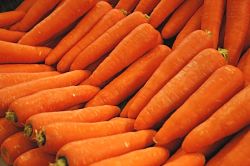Animals Are Nutrient Consumers

Plants are amazing nutrient factories. Consider how complex a tree is, with its functioning roots, trunk, branches, leaves, and flowers - all powered by sunlight.
Plants are the base of earth’s food chain, using solar energy to fuel nutrient manufacture. These green factories effortlessly put together the complex carbohydrates, fats, proteins, vitamins, and phytochemicals that animals need to survive and thrive. Plants also absorb minerals from the soil to weave into their own cells.
Animals who eat plants reap the benefits of these nutrients, needed for their own lives. With the exception of vitamin D, which forms in skin when sunlight hits it, animals cannot make the raw materials essential for their survival.
When you eat animal foods, you are consuming highly degraded remnants of the plants the animal lived on. The animal used virtually all the protein, complex carbs, essential fatty acids, vitamins, minerals, and phytochemicals from food for his or her own purposes. Plant foods fueled the animal’s growth, reproduction, breathing, digestion, immune system activity, blood circulation, organ and brain functioning, and all the other activities needed to function. In the process, just about all the good stuff in the plants got utilized or burned up, with the waste and excess eliminated in urine and feces.
The remaining nutrients in an animal’s muscles, organs, or milk is tiny when you compare it to the original plant sources. This is

Animal foods are like a tree stump - the degraded remnants of something that was once way more complex and valuable
why the largest land animals are all plant-eaters. Think elephants, rhinos, bulls, horses, elk, and hippos as examples. Plants are the most efficient foods, nutrient dense and healthy.
Vitamin A is an excellent illustration of this principle. Animal food defenders tout the fact that plant foods do not contain this nutrient, necessary for night vision, growth, and immunity, as a drawback for plant-based diets. In fact, the presence of vitamin A and the absence of raw materials that get made into this vitamin shows how degraded the animal foods really are.
Vitamin A is fat-soluble only. This means any dietary excess accumulates in your fatty tissues, and especially in your liver. You can’t eliminate it in urine. Your body is stuck with it.
So what’s the problem? Vitamin A toxicity is a serious, potentially life-threatening condition. Symptoms your body is burdened with too much of this nutrient include loss of minerals in your bones and teeth, joint and bone pain, menstrual problems, tendency to bleed, dry skin and hair, nausea, vomiting, headache, stupor, and enlargement of the liver and spleen.
In addition, vitamin A doesn’t have any antioxidant activity. This means it can’t help protect you from free radicals that damage your cells and speed aging.
Plants, on the other hand, supply up to 600 carotenoids, which are often called pro-vitamins. In your small intestines, your body converts many varieties of these carotenoids into all the vitamin A it needs. Because your body is in charge of this conversion, you will not be overburdened and threatened with too much vitamin A. A diet rich in whole plant foods, including dark green, yellow, and orange vegetables, sweet potatoes, tomatoes, and yellow and orange fruits, has loads of carotenoids.
Vitamin A deficiency is an issue for people who are generally undernourished, on a monotonous diet which does not supply enough calories or whole foods. People who cannot correctly absorb fats can also develop this problem. Vitamin A deficiency is not an issue if you eat adequate amounts of whole plant foods.

Colorful fruits and vegetables supply carotenoids, which your body uses to make vitamin A and to protect itself from dangerous free radicals
In addition to providing only safe amounts of vitamin A, carotenoids have another huge advantage over animal foods. These plant-based nutrients are powerful antioxidants, protecting you from the harmful effects of the inevitable free radicals that attack your cells.
Obtaining either vitamin A or carotenoids from supplements is not a healthy option. The megadoses in supplements can, for example, increase the risk of lung cancer in smokers. Again, too much is not a good thing. However, carotenoids from plant foods you eat may be protective against cancer.
In summary, plants supply beneficial carotenoids in safe doses, which your body uses to make all the vitamin A it needs. The unneeded carotenoids don’t accumulate to toxic excess. Instead, they protect you through their potent antioxidant activity.
Animal foods, on the other hand, contain the vitamin A that the animal made from the carotenoids in its own plant foods. This pre-made vitamin A cannot protect you from free radicals, plus it can accumulate to toxic excess. This process shows how plants are nutrient factories (making carotenoids), while animals are nutrient consumers (using carotenoids).
Here is another way to understand this. Think of a tree in all its complexity. A living tree has roots, trunk, branches, twigs, leaves, buds, flowers, and fruit or seed pods or cones. The tree symbolizes a whole plant food.
Now think of a stump. This tree remnant has only a tiny fraction of the complexity and raw materials of the living tree. The stump is what is left over after virtually all the raw materials of the original tree are gone. When you eat animal foods, you are eating the nutritional equivalent of a burned out stump. You are eating degraded plant foods that have lost virtually all their original goodness.
Intrigued? Now you can use our Whole Foods Blog Finder to target informative, fun postings on plant-based nutrition. Quick information at no cost!
Blog posting by Janice Stanger, Ph.D. Janice authored The Perfect Formula Diet, the smart person’s nutrition book built on sustainable food choices. Enjoy six kinds of whole foods for permanent, hunger-free weight loss and health.
Tags: carotenoids, getting healthy, Janice Stanger, nutrition facts, Plant-based nutrition, vegetables, vitamin A, whole foods




